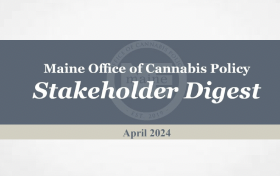From the Horse’s Mouth
Chairman Leahy Releases Remaining Nine Senate Appropriations Bills
WASHINGTON (Monday, Oct. 18, 2021) – Senate Appropriations Committee Chairman Patrick Leahy (D-Vt.) Monday released the remaining nine Fiscal Year 2022 Appropriations Bills. Monday’s announcement follows months of Leahy calling for bipartisan, bicameral negotiations with the White House on topline spending and the successful, bipartisan passage of the Energy & Water, Military Construction and Veteran’s Affairs, and Agriculture and Rural Development appropriations bills out of the Committee back in August.
The bills comply with the topline spending allocation contained in the Fiscal Year 2022 Budget Resolution. Combined with the three bills reported from the Appropriations Committee in August, the bills provide a 13 percent increase for non-defense discretionary programs and a 5 percent increase for defense programs. The five percent increase for defense programs is consistent with the bipartisan National Defense Authorization Act (NDAA) reported from the Senate Armed Services Committee and passed by the House with bipartisan support last month. These bills are largely a product of bipartisan work to address both Democratic and Republican funding priorities.
Senator Leahy said: “These bills make important investments in our nation’s infrastructure, our environment, and the middle class, including historic increases to promote affordable housing, educate our nation’s children, combat climate change, and improve healthcare. I have previously called for bipartisan, bicameral, negotiations on topline spending for Fiscal Year 2022, and I renew that call today so we can enact all 12 appropriations bills by December 3rd, when the current Continuing Resolution expires. In the meantime, these bills demonstrate how we can make smart investments on behalf of the American people within the topline approved by Congress, and I hope will help advance the process. The alternative to completing the appropriations process is a full-year continuing resolution, which does not serve the American people and locks in outdated spending priorities. As Senators, and Members of Congress, we should do our job, make the hard choices, and complete our work on behalf of the American people.”
A topline summary of all nine bills prepared by the office of Chairman Leahy is available HERE.
Below are links to the legislative text, explanatory statement, and a summary for each of the Fiscal Year 2022 appropriations bills:
Commerce, Justice, Science, and Related Agencies, 2022
Defense, 2022
(UPDATED 5 p.m. Monday, Oct. 18) Financial Services and General Government, 2022
Homeland Security, 2022
Interior, Environment, and Related Agencies, 2022
Labor, Health and Human Services, Education, and Related Agencies, 2022
Legislative Branch, 2022
State, Foreign Operations, and Related Programs, 2022
(UPDATED 5:30 p.m. Tuesday, Oct. 19) Transportation, Housing and Urban Development, and Related Agencies, 2022
Marijuana Moment reports
The Democratic leader of a key U.S. Senate committee on Monday released the text of legislation that, if enacted, would finally allow Washington, D.C. to legalize recreational marijuana sales—in contravention of the wishes of President Joe Biden.
The new bills and attached report language announced by Senate Appropriations Committee Chairman Patrick Leahy (D-VT), which are part of a package of legislation to fund the federal government for Fiscal Year 2022, also contain several additional cannabis-related provisions. Among others, they would continue an existing protection for state medical marijuana laws, call on the federal government to reconsider policies that fire employees for cannabis, criticize the restrictive drug classification system that impedes scientific research and encourage the development of technologies to detect THC-impaired driving.
NORML write
Senate Spending Proposal Removes ‘DC Rider,’ Maintains Existing State Medical Cannabis Protections
In the newly released annual spending packages by the Senate Appropriations Committee, cannabis policy is scantly mentioned yet by omission, it could advance a critical element of reform that has long been pushed for by NORML and other allies.
In the proposed FY22 Financial Services and General Government spending bill, which includes provisions relating to the District of Columbia’s budget, the Senate Appropriations Committee omitted an existing provision that prevents Washington, DC from implementing an adult-use cannabis consumer marketplace.
The District legalized marijuana possession and home cultivation under a voter initiative in 2014, but Congress through the imposition of a budget rider has prevented the local government from using its resources to create a licensed and transparent commercial sales program.
Notably, when the Biden Administration released their proposal spending package earlier this year, the budget included this restriction. At the time, DC Representative and cannabis policy reform champion Eleanor Holmes Norton said, “I am having a hard time reconciling the administration’s strong support for D.C. statehood, which would give D.C. not only voting representation in Congress but also full local self-government, with a budget that prohibits D.C. from spending its local funds on recreational marijuana commercialization. With Democrats controlling the White House, House and Senate, we have the best opportunity in over a decade to enact a D.C. appropriations bill that does not contain any anti-home-rule riders.”
The omission of the DC rider acknowledges the local will of the residents of the District, who overwhelmingly favor retail marijuana sales. The only reason the District is unable to defy the federal government’s marijuana prohibition policies in the same way that other states have is that it lacks statehood and is under direct oversight from Congress.
In the previous two years, the House appropriations package has excluded the DC rider, only to have it included in the final package by the then-Republican controlled Senate Appropriations Committee under Chairman Shelby (R-AL).
Furthermore, the report language for the FSGG spending package included language seeking to protect the employment of federal workers who consume cannabis in legal jurisdictions. This provision was first included in the House FSGG package in 2019 by Rep. Charlie Crist but the inclusion in the Senate bill marks its first appearance in the Upper Chamber.
This provision would seek to undo the harm done by the Federal Drug-Free Workplace Program, which made it a condition for employment that all civilian employees at executive branch agencies be prohibited from using federally illegal substances on or off duty. Medical marijuana is currently legal over three dozen states, D.C., Puerto Rico, and Guam, and 47 states have some form of medical marijuana law; however, it remains illegal under federal law. Therefore, federal employees can be denied employment or terminated due to testing positive for marijuana metabolites, even if their use is in compliance with state law. This conflict between state and federal laws limits treatment options and federal employment opportunities, particularly impacting veterans who comprise approximately one-third of the federal workforce and whose medical cannabis use to treat chronic pain and PTSD has been found to be double the rate of the general public. A recent American Legion poll found that nearly one in four veterans use marijuana to alleviate a medical condition.
Additionally included in the rollout of packages, the proposed Senate CJS annual appropriation bill maintains a continuation of the existing spending restriction on the Department of Justice to protect state-legal medical cannabis programs which have been in place since 2014.
Now both chambers must advance their full suite of appropriations packages and send them both to a conference committee for final negotiations.
So far the House packages include the SAFE Banking amendment, long supported by NORML. The House additionally was slated to vote on expanding the DOJ spending restriction to protect adult-use states as well but that vote has been postponed to a delay in the underlying CJS appropriations package being considered.
You can read NORML’s full memo on the appropriations process here.
You can used NORML’s action alert to tell your federal officials to not allow the Department of Justice to take action against any state legal cannabis program here.

















